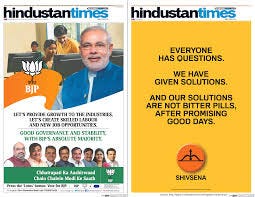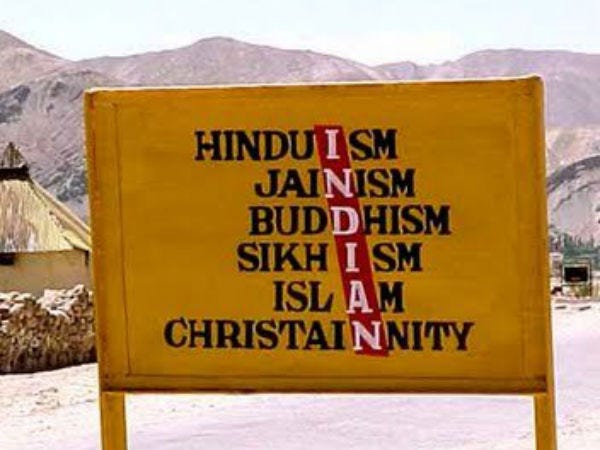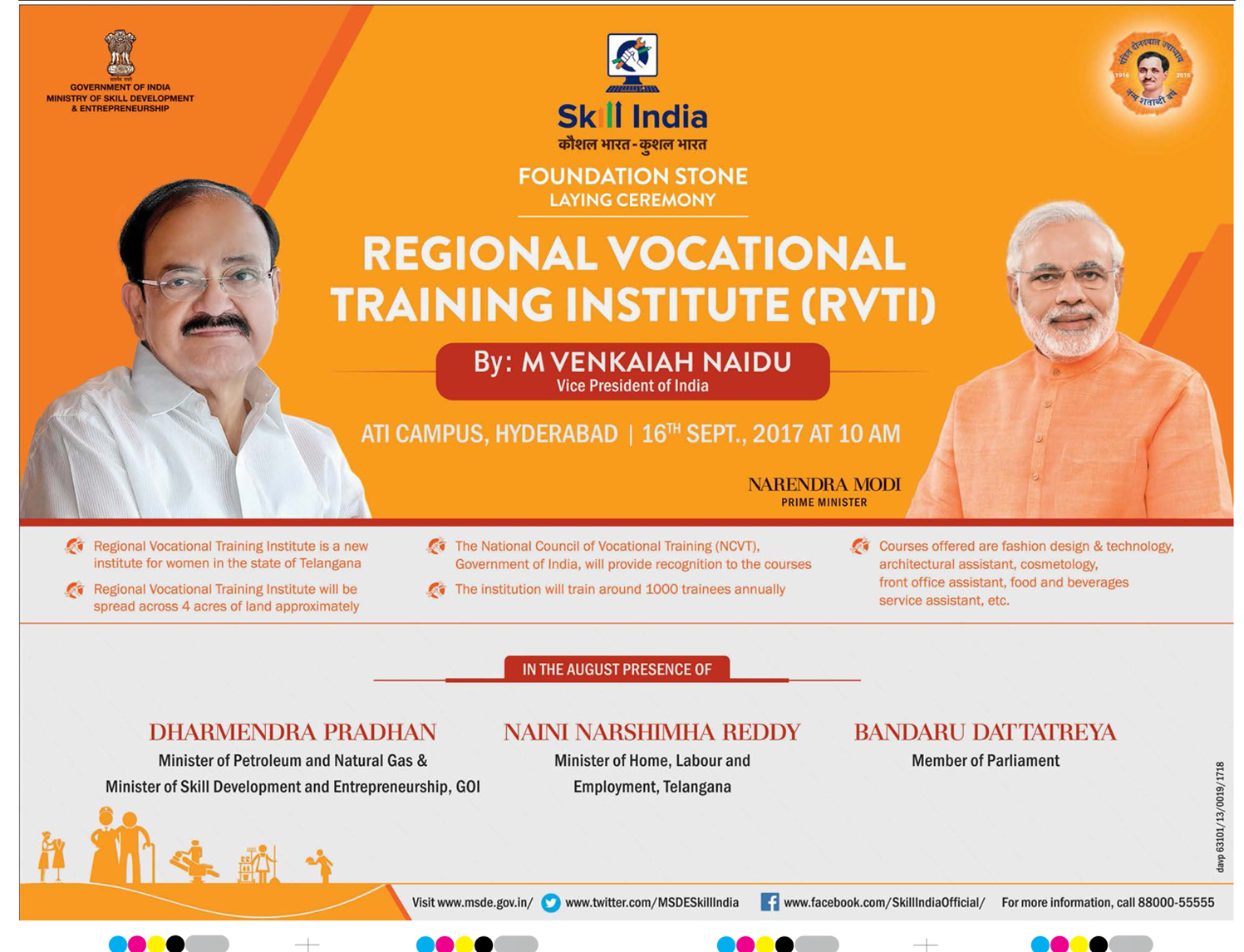By Sumeysh Srivastava


What is this tracker?
The Lok Sabha elections 2019 are underway and campaigning is on in full swing. Election campaigns are an opportunity for politicians to present their work to people, talk about future plans and convince people to vote for them. However, this is a competition, because you have to convince people that you are better than the next person, and this often leads to politicians indulging in practices which aren’t always honourable. This can range from asking for votes in the name of religion and caste, misusing government machinery to promote a political party or using the armed forces to gain support for a political party. The Election Commission has a model code of conduct, which regulate the actions of the political parties, candidates, people supporting them, the civil servants during election time and anybody else who is associated with elections. This tracker will basically point out issues of MCC violations which come in the news and explain what the law says about it. However, we won’t be commenting on what action the EC should take, because that’s not really up to us. Feel free to contribute by adding more news incidents to comments. If you don’t have a medium account, please share news items on our social media handles, and we will add them. To learn more about the MCC, who it applies to and what happens in case it’s violated, do check out our simple explainer.
Political Advertisements


Advertising which is in the nature of political propaganda or pursues a political agenda is known as political advertising. Political advertising is allowed but regulated by the MCC. If political parties misuse advertisements to further its prospects in the elections, then they are violating the MCC. The MCC prohibits candidates and political parties from doing the following:
- Putting up advertisements that contain any abusive language.
- Putting up advertisements or political arguments which target the personal lives of politicians.
- Criticizing political parties of their past work is allowed, but parties have to refrain from criticizing the aspects of a candidate’s personal life which is not connected with their political activities.
- Using public exchequer to issue advertisements regarding coverage of their political rally or political achievements.
The following are the ways by which political parties give out advertisements:
- Billboards and Hoardings
- Television and Radio
- Posters and Pamphlets
- Newspapers/Print Media
- Social Media Advertisements
In the news
Billboards and Hoardings


No political party or candidate can use your land, building or compound wall without your permission to erect billboards, hoardings, flag-staff, notices etc. If this happens to you, complain to your nearest District Electoral Office. To find out where the office is, call the Voter Helpline Number.
Posters, boards and hoardings can display general information like family planning, social welfare schemes etc. but they cannot display the achievements of political parties, photos of politicians and party symbols. For example, if the party in power puts up a hoarding on the highway with pictures of the members of their political party, then this violates the Model Code of Conduct.
In the news
Advertisement on Television


If the television broadcasts general events which are relevant and of common interest to the country, without supporting or criticising any candidate or political party, then it is not a violation of the MCC. Some examples are:
- If a political party is putting up pictures of political leaders while telecasting live coverage of a conference.
- A political party cannot screen a movie before the elections regarding the life of a politician as it would influence the viewers to vote for them.
To prevent any form of political advertising, TV Channels and Cable Networks by any registered political party, group, organization, association and individual candidate have to be precertified by the Media Certification and Monitoring Committee(MCMC) set up in district and state levels. If the MCMC finds that any advertisement has been made in TV or Cable Network in favour of any candidate without proper permission, they shall inform the Returning Officer (RO) immediately. The RO will then send a notice to the candidate and take action.
Advertisement on Radio
Radios are also a medium for political advertising by political parties and candidates and the Media Certification and Monitoring Committee(MCMC) in every district and state monitors all radio activity. They monitor the radio jingles of all political parties being transmitted on the FM channels so as to take appropriate steps to ascertain whether they are violating the Model Code of Conduct. The content of the radio jingles should not:
- Criticize the private lives of politicians.
- Attack religious communities.
- Consist of obscene and defamatory material.
- Incite violence.
- Affect India’s integrity, unity and sovereignty.
A register is maintained to keep track of the FM channels being heard where the name and number of channels are specifically entered. Two officers are assigned to listen to each FM channel for 30-minute slots.
Use of Religion as a Basis for Campaigning


A party or candidate cannot campaign in any manner which would result in creating tension or hatred between different castes and religious communities.
The MCC does not allow anyone or any organization to use religion to further the prospects of a candidate or a political party during an election irrespective of their relationship to the political party/individual candidate. For example, political parties, candidates, religious/cultural organizations, associations or individuals cannot campaign in favour of or against certain political parties or candidate by holding any meetings, conclaves, processions, religious congregations, etc.
Some of the actions that are prohibited are:
- No one can use religion and play on religious sentiments of voters.
- No one can ask for votes by influencing someone to believe that there is a religious punishment by God or a divine power which will occur to them if they don’t vote for a particular candidate.
- No one should use religion to create disharmony among different groups of people.
- No one should make any malicious statements which would attack the personal life of any politician.
- Temples, mosques, churches and other places of worship cannot be used for any election campaigning.
Some examples of violations of MCC by using religion for campaigning are:
- If pictures of politicians are put up on billboards outside the temple entrance.
- If money is given by a political party to beggars outside a temple to get votes.
In the news
Government Advertisement For Campaigning


Government advertisements usually inform the public of their rights, duties and entitlements and also explain government policies, programmes, services and initiatives. In order to prevent achieve this purpose, government advertisements should be objective, politically neutral and should not promote the political interest of the ruling party.
For example,
- While advertising the mid-day meal scheme offered by the government, the ruling party cannot use these advertisements in order to glorify leaders and candidates of their party. Adding names and photos of the party leaders to these advertisements would be a violation of MCC.
- There are subsidies on LPG gas to the ration card holders under the law. The ruling party cannot sell this as their own initiative and advertise it.
- The National Food Security Act, 2013 requires the government to mandatorily give people rice at 3 rupees per kg and wheat at 2 rupees per kg. The ruling party cannot claim that this has been done by them and advertise it.
Therefore during the time of the election, the ruling party cannot:
- Use funds from public exchequer reserved for government advertisements for their own re-election.
- Project a positive impression of the party in power or a negative impression of other political parties through these advertisements.
Content of Government Advertisements
Advertisement materials of the government must not:
- Mention the party in the government by name;
- Directly attack the views or actions of others in opposition;
- Include their own party political symbol or logo or flag;
- Aim to influence public support for a political party, candidate for election; or
- Refer to link to the websites of political parties or politicians.
In the news
> https://www.deccanherald.com/content/590632/get-pms-photographs-removed-govt.html
Ban on Use of Official Vehicles


The use of any official vehicles for campaigning or election-related travel from the date of announcement of elections till the completion of elections is not allowed.
But, if a political leader is under threat of extremist and terrorist activities and requires security, he can request the Election Commission for the use of an official vehicle.
What are Official Vehicles
Official vehicles are those vehicles that belong to the following:
- Central/State government,
- Public Undertakings/Joint Sector Undertakings of central and state governments,
- Local bodies, Panchayats, Municipal Corporations, Cooperative Societies, Marketing boards,
- Autonomous district councils in which public funds are invested,
- Ministry of Defence and other Ministers.
The different kinds of official vehicles are helicopters, aircraft, cars, jeeps, automobiles, boats, hovercrafts, trucks, lorries, tempos, cycle-rickshaws, auto-rickshaws, buses, etc.
In the news
Use of Government Property for Political Meeting and Campaigning
The political parties or candidates are not allowed to use public places like maidans, helipads, etc for holding public meetings.
For this purpose, political parties and candidates are allowed to use public or government-owned spaces such as playgrounds of schools, colleges and other educational institutions or other such public properties, provided that:
- The academic calendar of school/college is not disturbed under any circumstances.
- The school/college management has no objection, and prior permission for such campaigning is obtained from them as well as Sub Divisional Officer concerned.
- Such permission is granted on the first-come-first-served basis and no political party is allowed to monopolize the use of such grounds.
- There is no order/direction of any court prohibiting the use of any such premise/ground.
- The political parties/candidates/campaigners shall ensure that the MCC is not violated.
- The political party or candidate who has been allowed to use the school grounds will have to ensure that no damage is done to the ground. If there is any damage then they must pay appropriate compensation to the school authorities.
Private property can also be used for campaigning for political meetings but they will have to take permission from the owners.
If a person does not take permission from the owner of the property (public or private), it would be a crime where the person will be punished with jail time up to 3 months and/or a fine.
In the news
Use of Defence Forces for Campaigning


No political party or candidate should use the photographs of any defence forces or army staff during their campaign. Their photographs or functions cannot be mentioned in advertisements.
Some examples of violations of MCC by using armed forces for campaigning are:
- If a candidate campaigns by using the name of army personnel to get votes.
- If a candidate or political party campaigns by putting up posters and billboards with the pictures of defence personnel.
In the news
Social Media Advertisements


The MCC applies to all social media platforms. There are five categories of social media that are regulated under the MCC:
- Collaborative projects (like Wikipedia).
- Blogs and microblogs (like Twitter).
- Content communities (like YouTube).
- Social networking sites (like Facebook).
- Virtual Game worlds like (Gaming applications).
There are some rules that have to be followed by political parties and candidates while advertising through social media such as:
Giving Information
Candidates are supposed to fill Form 26 at the time of filing nominations. The form includes details of the candidate such as email ID, social media accounts etc. This is done so that the candidate declares all the authentic social media accounts that he/she has.
Pre-certification of advertisements
All social media advertisements have to be pre-certified by the Media Certification and Monitoring Committee set up in district and state levels. It is only after this committee looks into the advertisement can it be published online on any social media forum.
Expenditure
All candidates and political parties have to include the expenditure on advertisements which are on social media. Specifically, they need to make a note of expenditure regarding creative development of content, operational expenditure on salaries and wages and campaign-related expenses.
In the news


